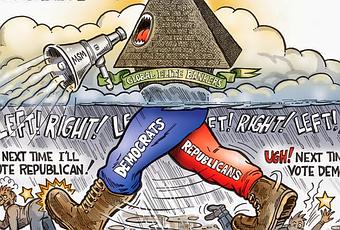
Since the American colonies declared their independence from a British monarchy that the Founders deemed “tyrannical,” European history has seen three major democratic moments: after the First World War in 1918, after the Second World War in 1945, and after the end of communism in 1989. The bad news is that the history of modern democracy is also one of decline and fall. The good news is that we can draw upon more recent and relevant examples than ancient Greece and Rome. If we worry today that the American experiment is threatened by tyranny, we can follow the example of the Founding Fathers and contemplate the history of other democracies and republics. It is thus a primary American tradition to consider history when our political order seems imperiled. Much of the succeeding political debate in the United States has concerned the problem of tyranny within American society: over slaves and women, for example. They had in mind the usurpation of power by a single individual or group, or the circumvention of law by rulers for their own benefit. In founding a democratic republic upon law and establishing a system of checks and balances, the Founding Fathers sought to avoid the evil that they, like the ancient philosophers, called tyranny.
#Government tyranny def install
As they knew, Aristotle warned that inequality brought instability, while Plato believed that demagogues exploited free speech to install themselves as tyrants. Concerned that the democratic republic they envisioned would collapse, they contemplated the descent of ancient democracies and republics into oligarchy and empire. As the Founding Fathers debated our Constitution, they took instruction from the history they knew. History does not repeat, but it does instruct. AFT resources for organizing and back to school programs.



 0 kommentar(er)
0 kommentar(er)
